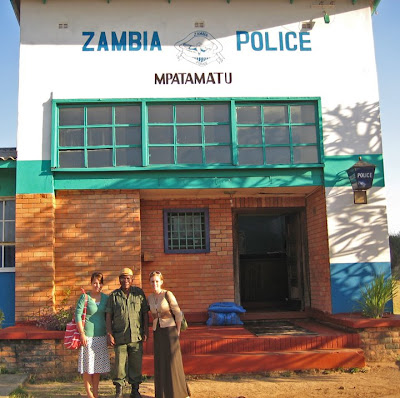 "Marriage Missionaries”
"Marriage Missionaries”We recently had the opportunity to meet a couple from Florida, who have a ministry similar to Living Well, self-described “marriage missionaries.” At first, I thought that was kind of an odd description. But, the more I thought about it, the more I realized that it was exactly what God has called me and Donna to do. The definition of a missionary is “one who goes out representing someone or some cause.” Missionaries represent Christ with His plan of reconciliation, salvation, and victorious living, according to the principles and precepts in His Word. All Christians are called to be missionaries, not just those serving in a distant country. Some are called to be vocational missionaries and I believe we, at Living Well, are among those.
The family fabric is unraveling. One notable research project estimates that $6 billion is lost by American businesses due to decreased productivity stemming from marriage and relationship difficulties. Divorce and out-of-wedlock childbearing cost U.S. taxpayers more than $112 billion a year. [report] America faces an extreme urgency to protect and strengthen marriage and families. We feel compelled to minister in that regard.
Every time we have the opportunity to sit across the table with a couple in marital distress, we’re serving as marriage missionaries. The same is true when we offer counsel and guidance to those in financial bondage, when we teach a group of engaged couples preparing them for marriage, when we lead seminars on relationships or guarding your heart, when we assist churches to establish and maintain effective marriage ministries through our involvement with Marriage Network Oklahoma, and when we offer training and encouragement to pastors and their wives in East Africa. We are serving as “marriage missionaries” in all our Living Well endeavors!
During the last several months, I have truly wrestled with God. Although I knew the story well of Jacob in Genesis 32, and I have certainly had many times in my life when I argued with God, for the first time I wrestled with God. It became very evident to me and Donna that for Living Well to go to the next level of ministry that God wanted, we needed more manpower. When we founded Living Well a little over five years ago, our long-term goal was to work together full-time in our ministry. That time had come, but I struggled with the decision. I am a detail person who likes order and normalcy. For people with this bent, change is often hard. We tend to settle in and resist change, especially a change of this magnitude.
So, the Lord and I wrestled! After months of prayer and godly counsel, our decision was made and God won the wrestling match! As of the end of this year, I will end my tenure of over 21 years as facility manager at Putnam City Baptist Church to come on board full-time at Living Well the first of January. We are very excited about future ministry opportunities. My full-time involvement will enhance our counseling ministry, especially in the area of personal finances. We will also be able to accept more teaching and speaking opportunities. Our leadership in Marriage Network Oklahoma can deepen. Our trips to Africa can be lengthened to several weeks, allowing us to be better stewards of time and funding, touching more pastors, their wives, and their churches.
In today’s troubled world, “Marriage Missionaries” are needed more than ever. We are ready to serve, but we can’t do it without each of you. Your prayer and financial support undergirds everything we do. Founding Living Well in 2003 required a step of faith. Now God says it’s time for a “leap” of faith. We must double our monthly financial support base to cover my salary and our medical insurance. We greatly appreciate the faithfulness of our financial supporters and humbly ask you to prayerfully consider increasing your support. For others, we ask you to consider including Living Well in your giving back to God for His work. [to donate] We love and appreciate all of you and look forward to seeing what the Lord’s hand will do in and through the ministry of Living Well.































































